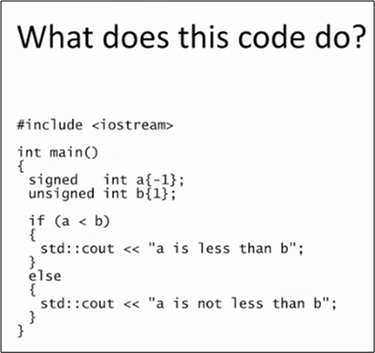4th Spanish C++ conference using std::cpp 2016 (spanish)
At the 24th of November at Leganés in Madrid in Spain, for the fourth year in a row the one day event using std::cpp will gather professional developers in a series of talks devoted exclusively to C++.
using std::cpp
This year using std::cpp includes the following talks:
- C++17 is (almost) here. J. Daniel García (ARCOS Lab, University Carlos III), member of ISO C++ standards committee and associate professor in Computer Architecture.
- Get your types to work. Software developer and contributor of several Boost libraries (example, Boost multi-index).
- C++ and much more. An overview to the available libraries univers. Martin Knoblauch (Indizen Technologies), a software developer in the finance sector.
- Test Driven Development in C++. Raúl Huertas (TCP Sistemas), a software developer with long background in the telecom business.
- Using C++ in safety critical embedded systems for railways. Ion Gaztañaga (CAF), another Boost contributor (example, Boost Interprocess).
- At a Matlab breakdown... Save me C++! Javier Garcia-Blas (ARCOS Lab, University Carlos III), visiting professor in Computer Architecture.
- Static and dynamic polymorphism in C++11: Flexibility versus performance?. J. Daniel Garcia (ARCOS Lab, University Carlos III), member of ISO C++ standards committee and associate professor in Computer Architecture.
- Using templates in C++ to design and implement. Jose Caicoya (Hotel Beds), software developer with background in real-time systems, finance and, more recently, hotel reservation systems.
- Distributed systems: How to connect your real-time applications. Jaime Martin (eProsima), developer of an open source DDS impelementation.
- Developing an reflection system for C++14. Manu Sanchez (ByTech), software developer and metaprogrammer.
About using std::cpp
The using std::cpp event has been happening every year since 2013 in University Carlos III (Leganes, Madrid, Spain), where every year around 200 developers have gathered to share experiences in using C++ for professional software develpment.
The event is organized by ARCOS Lab (University Carlos III), a research group focused in applications of high performance computing to multiple domains. It is also sponsored by Indizen Technologies.


 ACCU’s Overload journal of October 2016 is out. It contains the following C++ related articles.
ACCU’s Overload journal of October 2016 is out. It contains the following C++ related articles. An interesting talk!
An interesting talk!